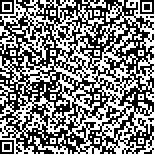| 摘要: |
| [摘要] 目的 探讨Rh抗原分型及血型不规则抗体筛检在精准输血中的应用效果。方法 选择2019年1月1日至2021年9月30日在青龙满族自治县医院住院且需临床输血治疗的患者200例,年龄12~71(48.43±1.45)岁。以2019年1月1日至2020年8月31日未实施Rh(D、C、c、E和e)5种血型抗原检测的100例输血病例作为对照组;以2020年9月1日至2021年9月30日经Rh血型抗原检测行相容性配血的100例输血病例作为试验组。在血制品入库前,应用抗人球蛋白卡式法对标本进行ABO血型和Rh(D、C、c、E和e)5种血型抗原及不规则抗体进行检测,并将结果录入输血信息管理系统。在使用时,应用输血信息管理系统为试验组受血者自动匹配ABO血型和Rh(D、C、c、E和e)5种血型抗原相合的血袋,采用盐水法及抗人球蛋白卡式法进行交叉配血试验,实现临床精准化输血。结果 对照组检出不规则抗体11例(11.00%),试验组检出2例(2.00%),比较差异有统计学意义(χ2=6.664,P=0.010)。试验组中未发生输血不良反应病例。对照组中发生输血不良反应1例,系患者产生了血型不规则抗-E抗体,经疑难配血、输注相合性血液4 U后,患者血红蛋白浓度升至预期水平,康复出院。与对照组相比,试验组疑难配血用时、住院时间更短,输注去白悬浮红细胞量更少,差异有统计学意义(P<0.05)。结论 开展Rh血型抗原检测有助于实现临床精准化输血,有效避免不规则抗体的产生,减少临床输血不良反应,提高临床输血治疗的安全性,值得临床推广。 |
| 关键词: Rh抗原分型 不规则抗体 精准输血 |
| DOI:10.3969/j.issn.1674-3806.2023.03.14 |
| 分类号:R 457.1 |
| 基金项目:秦皇岛市级科学技术研究与发展计划项目(编号:202101A181) |
|
| A study on the application effect of Rh antigen typing and irregular blood group antibody screening in precise blood transfusion |
|
LI Xiu-ling, ZHANG Dong-min, KONG Qing-he, et al.
|
|
Blood Bank, Qinglong Manchu Autonomous County Hospital, Qinhuangdao 066599, China
|
| Abstract: |
| [Abstract] Objective To investigate the application effect of Rh antigen typing and irregular blood group antibody screening in precise blood transfusion. Methods Two hundred patients who were hospitalized in Qinglong Manchu Autonomous County Hospital and needed clinical blood transfusion from January 1, 2019 to September 30, 2021 were selected, and the age of the patients ranged from 12 to 71(48.43 ± 1.45)years. One hundred blood transfusion cases without five Rh(D, C, c, E, and e) blood group antigens test from January 1, 2019 to August 31, 2020 were selected as the control group, and one hundred blood transfusion cases who underwent compatible blood matching by Rh blood group antigen detection from September 1, 2020 to September 30, 2021 were selected as the experimental group. Before the blood products were put into the warehouse, the anti-human globulin cassette method was used to test the ABO blood groups and the five Rh(D, C, c, E, and e) blood group antigens and irregular antibodies, and the results were input into the Blood Transfusion Information Management System. When in use, the Blood Transfusion Information Management System was used to automatically match blood bags with the ABO blood groups and the five Rh(D, C, c, E, and e) blood group antigens for the recipients in the experimental group. The saline method and the anti-human globulin cassette method were used for conducting cross-matching test and the cross-matching test was carried out to achieve clinical precise blood transfusion. Results Irregular antibodies were detected in 11 cases(11.00%) in the control group, and 2 cases(2.00%) in the experimental group, and the difference was statistically significant(χ2=6.664, P=0.010). There were no cases of adverse blood transfusion reaction in the experimental group. In the control group, 1 case of adverse blood transfusion reaction occurred, which was caused by the production of the patient′s irregular blood group anti-E antibody. After difficult blood matching and infusion of 4 U of compatible blood, the patient′s hemoglobin concentration rose to the expected level, and the patient recovered and was discharged from the hospital. Compared with those in the control group, the difficult blood matching time and hospital stay were shorter, and the amount of transfused leukocyte-free suspended red blood cells was less in the experimental group, and the differences were statistically significant(P<0.05). Conclusion The detection of Rh blood group antigens is helpful to achieve clinical precise blood transfusion, and effectively avoids the production of irregular antibodies, and reduces the occurrence of clinical blood transfusion adverse reactions, and improves the safety of clinical blood transfusion treatment, which is worthy of clinical promotion. |
| Key words: Rh antigen typing Irregular antibody Precise blood transfusion |

